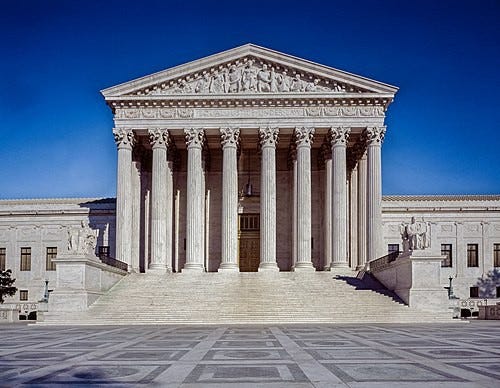In Iran, one man exercises complete control for his lifetime. In the US, it's now six people
Political gridlock across the US federal government has made the country’s supreme court uniquely powerful.
That it currently has an overrepresentation of conservative opinions — appointed by Republican presidents; in fact, three by Donald Trump — and that these judges are unfettered by tenure considerations, means the US cannot, for many decades, remake its highest court nor keep it in check.
So, power in the US — at the hands of its highest court — is now about force. The force of numbers, which is to say a brute majority of ideologically hardline judges on the court.
The three liberal justices currently on the US supreme court made this point in their dissent to the majority ruling in Dobbs v. Jackson Women’s Health, which led to the overturning of Roe v Wade.
They wrote:
“So how does that approach prevent the ‘scale of justice’ from ‘waver[ing] with every new judge’s opinion’? It does not. It makes radical change too easy and too fast, based on nothing more than the new views of new ju…
Keep reading with a 7-day free trial
Subscribe to This Week, Those Books to keep reading this post and get 7 days of free access to the full post archives.



